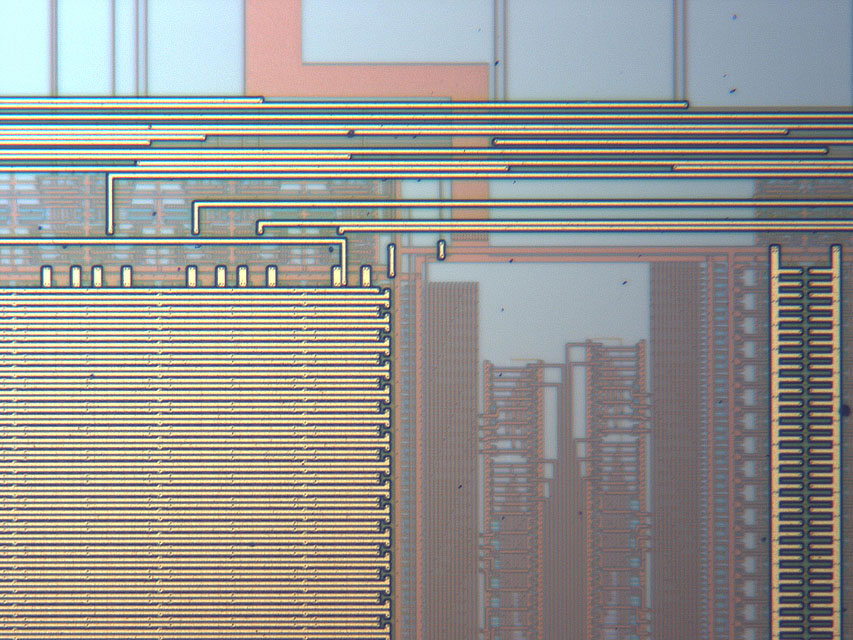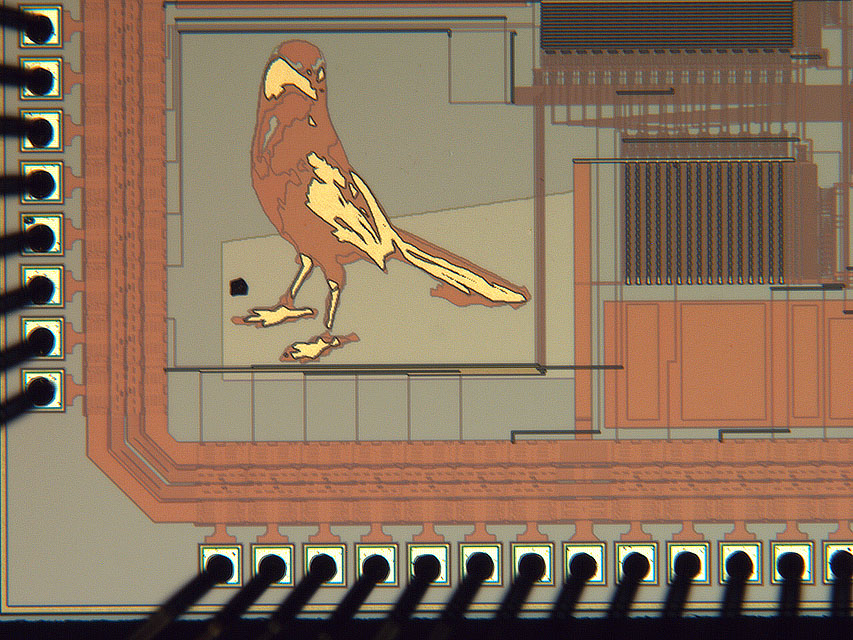|
|
Program
Keynote 1: DARPA's Data Driven Discovery of Models (D3M) and Software Defined Hardware (SDH) programs
(Water Tower AB - Floor 2, 9:00 - 10:00, Wednesday, May 23)
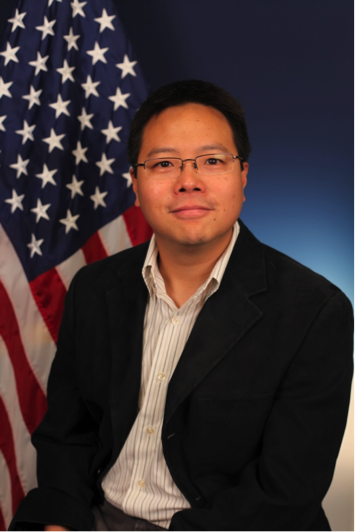
Wade Shen, Program Manager, DARPA
Moderator: Houman Homayoun, George Mason University
Abstract:
This talk will provide background and understand on two nationally significant DARPA programs.
D3M:
Understanding the complex and increasingly data-intensive world around us relies on the
construction of robust empirical models, i.e., representations of real, complex systems
that enable decision makers to predict behaviors and answer “what-if” questions. Today,
construction of complex empirical models is largely a manual process requiring a team of
subject matter experts and data scientists. With ever more data becoming available via
improved sensing and open sources, the opportunity exists to build models to speed scientific
discovery, enhance Department of Defense/Intelligence Community’s intelligence, and improve
United States Government logistics and workforce management, but capitalizing on this
opportunity is fundamentally limited by the availability of data scientists.
The Data-Driven Discovery of Models (D3M) program aims to develop automated model discovery
systems that enable users with subject matter expertise but no data science background to
create empirical models of real, complex processes. This capability will enable subject
matter experts to create empirical models without the need for data scientists, and will
increase the productivity of expert data scientists via automation.
SDH:
In modern warfare, decisions are driven by information. The ability to provide useful
understanding and prediction is dependent on the efficient implementation of algorithms.
Today, to gain the most efficiency possible, we design and fabricate application specific
integrated circuits (ASICs) to maximize the efficiency of a specific algorithm. ASICs typically
cost hundreds of millions of dollars and take many years to develop, and they can perform
exactly one specific algorithm. Because ASICs are so specifically tailored and costly,
they are viable only for the highest priority applications. For problems that cannot afford
this level of investment, compute efficiency is sacrificed by implementing solutions on
general-purpose processors or field programmable gate arrays (FPGAs). Typically, this
results in application implementations that are thousands of times worse than optimal.
The Software Defined Hardware (SDH) program aims to develop a malleable hardware/software
architecture that enables near ASIC performance without sacrificing programmability for
data-intensive algorithms. SDH will enable multiple data-intensive algorithms to run at
near ASIC efficiency on a single architecture without the cost, development time or single
application limitations associated with ASICs or the inefficiencies associated with general
purpose processing. SDH architectures can be reused for new problems and new algorithms for
existing problems, and the dynamic optimization of code and hardware when input data change.
Bio:
Mr. Wade Shen joined DARPA in 2014 as a program manager. His research
interests include machine learning, machine translation, speech recognition and data analytics
for improved human/computer interaction. Mr. Shen joined DARPA from the Massachusetts Institute
of Technology, Lincoln Laboratory where he was an associate group leader in the Human Language Technology Group. Mr. Shen’s area of research involved machine translation; speech; speaker and language recognition; information extraction and prosodic modeling for both small- and large-scale applications. Prior to joining MIT Lincoln Laboratory, Wade helped found and served as chief technology officer for Vocentric Corporation, a company specializing in speech technologies for resource-constrained and embedded applications. Mr. Shen has served as the chair of Lincoln
Laboratory's Advanced Concept Committee, on DARPA's Information Science and Technology (ISAT)
study group and as the US technical representative for NATO's IST-078 and IST-102 speech/language
processing study groups.
Mr. Shen received his master's degree in computer science from the University of Maryland,
College Park and his bachelor's degree in electrical engineering and computer science from the
University of California, Berkeley.
|
Keynote 2: Self-Awareness for Heterogeneous MPSoCs: A Case Study using Adaptive, Reflective Middleware
(Water Tower AB - Floor 2, 9:00 - 10:00, Thursday, May 24)
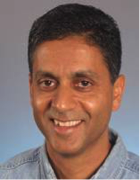
Nikil Dutt, Chancellor’s Professor, University of California, Irvine
Moderator: Baris Taskin, Drexel University
Abstract:
Self-awareness has a long history in biology, psychology, medicine,
engineering and (more recently) computing. In the past decade this has inspired new self-aware
strategies for emerging computing substrates (e.g., complex heterogeneous MPSoCs) that must cope
with the (often conflicting) challenges of resiliency, energy, heat, cost, performance, security,
etc. in the face of highly dynamic operational behaviors and environmental conditions. Earlier we
had championed the concept of CyberPhysical-Systems-on-Chip (CPSoC), a new class of sensor-actuator
rich many-core computing platforms that intrinsically couples on-chip and cross-layer sensing and
actuation to enable self-awareness. Unlike traditional MPSoCs, CPSoC is distinguished by an
intelligent co-design of the control, communication, and computing (C3) system that interacts
with the physical environment in real-time in order to modify the system’s behavior so as to
adaptively achieve desired objectives and Quality-of-Service (QoS). The CPSoC design paradigm
enables self-awareness (i.e., the ability of the system to observe its own internal and external
behaviors such that it is capable of making judicious decision) and (opportunistic) adaptation
using the concept of cross-layer physical and virtual sensing and actuations applied across
different layers of the hardware/software system stack. The closed loop control used for adaptation
to dynamic variation -- commonly known as the observe-decide-act (ODA) loop -- is implemented using
an adaptive, reflective middleware layer.
In this talk I will present a case study of this adaptive, reflective middleware layer using a
holistic approach for performing resource allocation decisions and power management by leveraging
concepts from reflective software. Reflection enables dynamic adaptation based on both external feedback
and introspection (i.e., self-assessment). In our context, this translates into performing resource
management actuation considering both sensing information (e.g., readings from performance counters,
power sensors, etc.) to assess the current system state, as well as models to predict the behavior of
other system components before performing an action. I will summarize results leveraging our
adaptive-reflective middleware toolchain to i) perform energy-efficient task mapping on heterogeneous
architectures, ii) explore the design space of novel HMP architectures, and iii) extend the lifetime of
mobile devices.
Bio:
Dr. Nikil Dutt is a Chancellor's Professor of CS, Cognitive Sciences, and
EECS at the University of California, Irvine. He received a PhD from the University of Illinois
at Urbana-Champaign (1989). His research interests are in embedded systems, EDA, computer
architecture and compilers, distributed systems, and brain-inspired architectures and computing.
He has received numerous best paper awards and is coauthor of 7 books. Professor Dutt has served
as EiC of ACM TODAES and AE for ACM TECS and IEEE TVLSI. He is on the steering, organizing, and
program committees of several premier EDA and Embedded System Design conferences and workshops,
and has also been on the advisory boards of ACM SIGBED, ACM SIGDA, ACM TECS and IEEE ESL. He is an
ACM Fellow, IEEE Fellow, and recipient of the IFIP Silver Core Award.
|
Keynote 3: Assuring Microelectronics Innovation for National Security & Economic Competitiveness (MINSEC)
(Glessner ABC - Floor 3, 12:00 - 1:10, Thursday, May 24)

Jeremy Muldavin, Deputy Director of Defense Software & Microelectronics Activities, Office of the Deputy Assistant Secretary of Defense for Systems Engineering
Moderator: Houman Homayoun, George Mason University
Abstract:
The Office of the Deputy Assistant Secretary of Defense for Systems Engineering
launched an initiative in Fiscal Year (FY) 2017 in support of trusted and assured access to advanced
semiconductor technology for the Department of Defense (DoD) as well as the broader United States Government.
The initiative has three main elements: (1) development of an alternate trusted photomask capability to preserve
long-term trusted access and protection of Intellectual Property, (2) enhanced verification and validation
activities at key government laboratories and the promotion of industry best practices and commercial standards in
the areas of microelectronics trust and assurance, and (3) the development and transition of technologies in
support of a new trust and assurance approach. In recognition of critical near term needs, the DoD requested
additional funding in FY 2018 to address gaps in availability, access, and assurance including an initial
investment in next generation disruptive microelectronics research and development to maintain U.S.
technological edge in critical technology and the marketplace. This presentation will describe these efforts
and discuss their status and the overarching management approach.
Bio:
Dr. Jeremy Muldavin received his BSE in Engineering Physics and his MSE
and PHD in Electrical Engineering with a major in Electromagnetics and a minor in
Communications. He has worked at MIT Lincoln Laboratory since 2001 researching advanced
microelectronics, semiconductor fabrication, embedded systems, and open and distributed
architectures. He is currently on an IPA assignment to the Office of the Deputy Assistant
Secretary of Defense for Systems Engineering (ODASD (SE)), where he serves as Deputy Director
assigned to address near-term and longer term access to trusted and assured foundry capabilities.
|
Keynote 4: Connected Devices, AI, and Scale – Trends Driving Semiconductor Innovation
(Phoenix Restaurant / Chinatown, 07:00 - 9:30, Thursday, May 24)
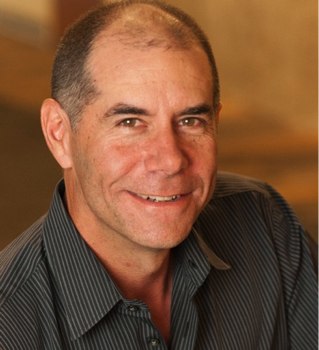
David Pellerin, Head of Global Business Development, Infotech/Semiconductor, Amazon Web Services
Moderator: Deming Chen, University of Illinois at Urbana–Champaign
Abstract:
Rapid adoption and production deployments of connected devices,
coupled with AI-driven methods of advanced analytics, have led to an explosion in demand for
non-traditional, more scalable computing and data management platforms. This increasing demand is
being seen in the public cloud as well as in cloud-connected IoT edge devices. AI is at the heart of
many the newest, most advanced analytics and IoT applications, ranging from robotics and autonomous
vehicles, to cloud-connected products such as Amazon Alexa, to smart factories and consumer-facing
services in the financial and healthcare sectors. This talk presents examples of such use-cases within
Amazon, as well examples of how Amazon customers increasingly rely on AI coupled with IoT hardware and
software stacks to innovate faster, and at cloud scales. The talk will conclude with examples of how
cloud-based semiconductor design and manufacturing are being enhanced using these same methods.
Bio:
Mr. David Pellerin serves as Head of Worldwide Business Development for Infotech/Semiconductor
at Amazon Web Services. Prior to joining AWS, Mr. Pellerin had a career in electronic design automation and
hardware-accelerated reconfigurable computing. He has experience with digital logic simulation and optimization,
high-level synthesis, grid and cluster computing, FPGA design, and embedded systems. He has published five
Prentice Hall technical books including “Practical Design Using Programmable Logic”, “VHDL Made Easy”,
and “Practical FPGA Programming in C”.
|
Keynote 5: A Cross-Layer Perspective for Energy Efficient Processing - From beyond-CMOS devices to deep learning
(Water Tower AB - Floor 2, 9:00 - 10:00, Friday, May 25)
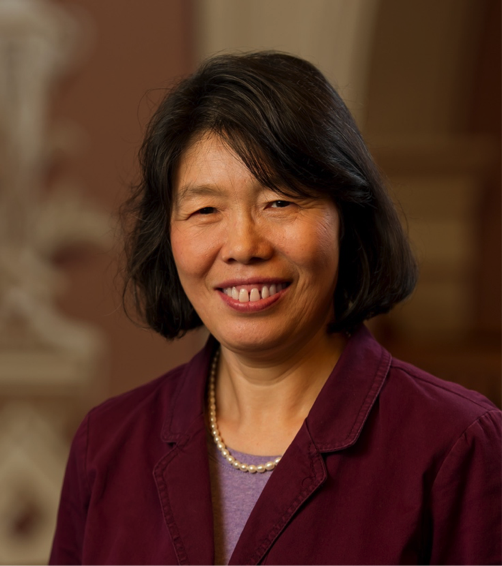
X. Sharon Hu, Professor, University of Notre Dame
Moderator: Yanjing Li, University of Chicago
Abstract:
As Moore’s Law based device scaling and accompanying performance
scaling trends are slowing down, there is increasing interest in new technologies and
computational models for fast and more energy-efficient information processing. Meanwhile,
there is growing evidence that, with respect to traditional Boolean circuits and von Neumann
processors, it will be challenging for beyond-CMOS devices to compete with the CMOS technology.
Nevertheless, some beyond-CMOS devices demonstrate other unique characteristics such as ambipolarity,
negative differential resistance, hysteresis, and oscillatory behavior. Exploiting such unique
characteristics, especially in the context of alternative circuit and architectural paradigms,
has the potential to offer orders of magnitude improvement in terms of power, performance and
capability.
In order to take full advantage of beyond-CMOS devices, however, it is no longer sufficient to
develop algorithms, architectures and circuits independent of one another. Cross-layer efforts
spanning from devices to circuits to architectures to algorithms are indispensable. This talk will
examine energy-efficient neural network accelerators for embedded applications in this context.
Several deep neural network accelerator designs based on cross-layer efforts spanning from alternative
device technologies, circuit styles and architectures will be highlighted. A comprehensive
application-level benchmarking study for the MNIST dataset will be presented. The discussions will
demonstrate that cross-layer efforts indeed can lead to orders of magnitude gain towards achieving
extreme scale energy-efficient processing.
Bio:
Dr. X. Sharon Hu is a professor in the department of Computer Science and
Engineering at the University of Notre Dame, USA. Her research interests include low-power system
design, circuit and architecture design with emerging technologies, hardware/software co-design and
real-time embedded systems. She has published more than 300 papers in these areas. Some of her
recognitions include the Best Paper Award from the Design Automation Conference and from the IEEE
Symposium on Nanoscale Architectures, and the NSF CAREER award. She has participated in several
large government and industry sponsored center-level projects and is a theme leader in an NSF/SRC
E2CDA project. She is the General Chair of Design Automation Conference (DAC) in 2018, was the TPC
chair of DAC in 2015, and was a member of TPC and Executive Committees of a number of other conferences.
She also served as Associate Editor for IEEE Transactions on VLSI, ACM Transactions on Design Automation
of Electronic Systems, etc. and is an Associate Editor of ACM Transactions on Cyber-Physical Systems. X.
Sharon Hu is a Fellow of the IEEE.
|
Technical Sessions 1
Wednesday
May 23
10:20 - 12:00
|
Tech session 1: Emerging Computing, and Post-CMOS Technologies
(Water Tower AB - Floor 2)
Chair: Ronald Demara, University of Central Florida
Co-Chair: Mahdi Nikdast, Colorado State University
Logic-Encrypted Synthesis for Energy-Harvesting-Powered Spintronic-Embedded Datapath Design
Arman Roohi, Ramtin Zand and Ronald Demara
Low-Energy Deep Belief Networks using Intrinsic Sigmoidal Spintronic-based Probabilistic Neurons
(Best Paper Award Candidate)
Ramtin Zand, Kerem Y. Camsari, Steven D. Pyle, Ibrahim Ahmed, Chris H. Kim and Ronald F. Demara
Maxflow: Minimizing Latency in Hybrid Stochastic-Binary Systems
Paishun Ting and John Hayes
Methodology to Capture Statistical Effect of Process Imperfections on Glitch Suppression in CNFET circuits and Counter using Approximate Circuits
Kaship Sheikh and Lan Wei
Performance and Energy Enhancement Through an Online Single/Multi level mode Switching Cache Architecture
Ramin Rezaeizadeh Rookerd, Somayeh Sadeghi-Kohan and Zainalabedin Navabi
|
|
Technical Sessions 2
Wednesday
May 23
10:20 - 12:00
|
Tech session 2: Secure Design of Multi-Core and Cryptographic Systems
(George Pullman - Floor 3)
Chair: Sai Manoj, George Mason University
Co-Chair: Selcuk Kose, University of South Florida
SEPUFSoC: Using PUFs for Memory Integrity andAuthentication in Multi-Processors System-on-Chip
Johanna Sepulveda, Felix Willgerodt and Michael Pehl
Protecting Communication in Many-Core Systems against Active Attackers
Sadia Moriam, Elke Franz, Paul Walther, Akash Kumar, Thorsten Strufe and Gerhard Fettweis
A Homomorphic Encryption Scheme Based on Affine Transforms
Kyle Loyka, He Zhou and Sunil Khatri
Resilient AES Against Side-Channel Attack Using All-Spin Logic
Qutaiba Alasad, Jiann-Shiun Yuan and Jie Lin
|
|
Technical Sessions 3
Wednesday
May 23
1:10 - 2:30
|
Tech session 3: Interconnects and Manycore Management
(Water Tower AB - Floor 2)
Chair: Sudeep Pasricha, Colorado State University
Co-Chair: Anup Das, Drexel University
DeEPeR: Enhancing Performance and Reliability in Chip-Scale Optical Interconnection Networks
(Best Paper Award Candidate)
Mahdi Nikdast, Gabriela Nicolescu, Jelena Trajkovic and Odile Liboiron-Ladouceur
A 0.24pJ/bit, 16Gbps OOK Transmitter Circuit in 45-nm CMOS for Inter and Intra-Chip Wireless Interconnects
Tanmay Shinde, Suryanarayanan Subramaniam, Padmanabh Deshmukh, M Meraj Ahmed, Mark Indovina and Amlan Ganguly
TaSaT: Thermal-Aware Scheduling and Tuning Algorithm for Heterogeneous and Configurable Embedded Systems
Mohamad Hammam Alsafrjalani and Tosiron Adegbija
Interfacing 3D-stacked Electronic and Optical NoCs with Mixed CMOS-ECL Bridges: a Realistic Preliminary Assessment
Mahdi Tala, Oliver Schrape, Milos Krstic and Davide Bertozzi
|
|
Technical Sessions 4
Wednesday
May 23
4:40 - 6:00
|
Tech session 4: Low Power Variation Aware Circuit Design
Session chair: Inna Partin-Vaisband, University of Illinois at Chicago
(Water Tower AB - Floor 2)
Chair: Inna Partin-Vaisband, University of Illinois at Chicago
Co-Chair: Avesta Sasan, George Mason University
A Framework Exploiting Process Variability To Improve Energy Efficiency in FPGA Applications
Konstantinos Maragos, George Lentaris, Ioannis Stratakos and Dimitrios Soudris
Assessing the impact of temperature and supply voltage variations in near-threshold circuits using an analytical model
Sneh Saurabh and Vishav Vikash
Impolite High Speed Interfaces with Asynchronous Pulse Logic
Merritt Miller, Carrie Segal, David McCarthy, Aditya Dalakoti, Forrest Brewer and Prashansa Mukim
Short-path Padding Method for Timing Error Resilient Circuits based on Transmission Gates Insertion
(Best Paper Award Candidate)
Wentao Dai, Weiwei Shan and Peiye Liu
|
|
Technical Sessions 5
Thursday
May 24
10:20 - 12:00
|
Tech session 5: The World of Neural Networks
(Water Tower AB - Floor 2)
Chair: Amlan Ganguly, Rochester Institue of Technology
Co-Chair: Ioannis Savidis, Drexel University
Energy and Performance Efficient Computation Offloading for Deep Neural Networks in a Mobile Cloud Computing Environment
Amir Erfan Eshratifar and Massoud Pedram
Adapting Convolutional Neural Networks for Indoor Localization with Smart Mobile Devices
(Best Paper Award Candidate)
Ayush Mittal, Saideep Tiku and Sudeep Pasricha
Face Recognition with Hybrid Efficient Convolution Algorithms on FPGAs
Chuanhao Zhuge, Xinheng Liu, Xiaofan Zhang, Sudeep Gummadi, Jinjun Xiong and Deming Chen
SCALENet: a SCalable Low power AccELerator for real-time embedded deep neural Networks
Colin Shea, Adam Page and Tinoosh Mohsenin
|
|
Technical Sessions 6
Thursday
May 24
1:10 - 2:30
|
Tech session 6: New Solutions for Classic IP Protection Challenges
(Water Tower AB - Floor 2)
Chair: Benjamin Carrion Schaefer, University of Texas at Dallas
Co-Chair: Hamid Mahmoodi, San Francisco State University
Improving the Security of Split Manufacturing Using a Novel BEOL Signal Selection Method
Suyuan Chen and Ranga Vemuri
A novel polymorphic gate based circuit fingerprinting technique
Tian Wang, Xiaoxin Cui, Dunshan Yu, Omid Aramoon, Timothy Dunlap, Gang Qu and Xiaole Cui
Cross-Lock: Dense Layout-Level Interconnect Locking using Cross-bar Architectures
(Best Paper Award Candidate)
Kaveh Shamsi, Meng Li, David Z. Pan and Yier Jin
SRCLock: A SAT Resistance Cyclic Logic Obfuscation
Shervin Roshanisefat, Hadi Mardani Kamali and Avesta Sasan
|
|
Technical Sessions 7
Thursday
May 24
1:10 - 2:30
|
Tech session 7: Machine Learning and HW Accelerators
(George Pullman - Floor 3)
Chair: Fatemeh Tehranipoor, San Francisco State University
Co-Chair: Qi Zhu, Northwestern University
Scalable Hardware Accelerator for Mini-Batch Gradient Descent
Sandeep Rasoori and Venkatesh Akella
MC3A: Markov Chain Monte Carlo ManyCore Accelerator
Lahir Marni, Morteza Hosseini and Tinoosh Mohsenin
AEAS - Towards High Energy-efficiency Design for OpenSSL Encryption Acceleration through HW/SW Co-design
Chunhua Xiao, Yuhua Xie and Lei Zhang
A Machine Learning Attack Resistant Dual-mode PUF
Qian Wang, Mingze Gao and Gang Qu
|
|
Technical Sessions 8
Thursday
May 24
4:40 - 6:00
|
Tech session 8: Scalable Simulation: Parallel and Approximate Computing
(Water Tower AB - Floor 2)
Chair: Tinoosh Mohsenin, University of Maryland Baltimore County
Co-Chair: Gang Qu, University of Maryland
A Distributed Power Grid Analysis Framework from Sequential Stream Graph
Chun-Xun Lin, Tsung-Wei Huang, Ting Yu and Martin Wong
A Distributed Parallel Random Walk Algorithm for Large-Scale Capacitance Extraction and Simulation
(Best Paper Award Candidate)
Mingye Song, Zhezhao Xu, Wei Xue and Wenjian Yu
A Fast and Fuzzy Functional Simulator of Inexact Arithmetic Operators for Approximate Computing Systems
Justine Bonnot, Karol Desnos, Maxime Pelcat and Daniel Menard
Battery-aware Design Exploration of Scheduling Policies for Multi-sensor Devices
Yukai Chen, Daniele Jahier Pagliari, Enrico Macii and Massimo Poncino
|
|
Technical Sessions 9
Friday
May 25
10:20 - 12:00
|
Tech session 9: Test and Fault Tolerance
(Water Tower AB - Floor 2)
Chair: Yier Jin, University of Florida
Co-Chair: Yanjing Li, University of Chicago
Accelerating Coverage Directed Test Generation for Functional Verification: A Neural Network-based Framework
Fanchao Wang, Hanbin Zhu, Pranjay Popli, Yao Xiao, Paul Bodgan and Shahin Nazarian
Effective In-Situ Chip Health Monitoring with Selective Monitor Insertion Along Timing Paths
Hadi Ahmadi Balef, Hamed Fatemi, Kees Goossens and Jose Pineda De Gyvez
Low Complexity Burst Error Correcting Codes to correct MBUs in SRAMs
Abhishek Das and Nur A. Touba
Loss is Gain: Shortening Data for Lifetime Improvement on Low-Cost ECC Enabled Consumer-Level Flash Memory
Yejia Di, Liang Shi, Congming Gao, Qiao Li and Chun Xue
A Novel Fault-Tolerant Last Level Cache to Improve Reliability at Near-Threshold Voltage
Wei Liu, Zhigang Wei and Wei Du
|
|
Technical Sessions 10
Friday
May 25
1:10 - 2:30
|
Tech session 10: Memory Architectures
(Water Tower AB - Floor 2)
Chair: Yongqiang Lyu, Tsinghua University
AB-Aware: Application Behavior Aware Management of Shared Last Level Caches
Suhit Pai, Newton Singh and Virendra Singh
Towards Near-Data Processing of Compare Operations in 3D-stacked memory
Palash Das and Hemangee Kapoor
Utility Aware Snoozy Caches for Energy Efficient Chip Multi-Processors
A. Kulkarni, Shounak Chakraborty, S. P. Mahajan and Hemangee K. Kapoor
SARO: A State-Aware Reliability Optimization Technique for High Density NAND Flash Memory
Myungsuk Kim, Youngsun Song, Myoungsoo Jung and Jihong Kim
|
|
Technical Sessions 11
Friday
May 25
1:10 - 2:30
|
Tech session 11: Modern Routing: from Timing, Reliability to Machine Learning
(George Pullman - Floor 3)
Chair: Yue Zhang, Beihang University
Simultaneous Timing Driven Tree Surgery in Routing with Machine Learning-based Acceleration
Peishan Tu, Chak-Wa Pui and Evangeline Young
Electromigration Design Rule aware Global and Detailed Routing Algorithm
Xiaotao Jia, Yici Cai, Qiang Zhou and Jing Wang
A Comparative Study of Local Net Modeling Using Machine Learning
Jackson Melchert, Boyu Zhang and Azadeh Davoodi
Fast Timing Analysis of Non-Tree Clock Network with Shorted Wires
Kiwon Yoon, Daijoon Hyun and Youngsoo Shin
|
|
Special Sessions 1
Wednesday
May 23
1:10 - 2:30
|
Special session 1: Powering Heterogeneous IoT Systems: Design for Efficiency, Security, and Sustainability
(George Pullman - Floor 3)
Organizers: Selcuk Kose, University of South Florida
Co-organizers: Inna Partin-Vaisband, University of Illinois at Chicago
Title 1: Reliable On-Chip Voltage Regulation for Sustainable and Compact IoT and Heterogeneous Computing Systems
Speaker: Selcuk Kose, University of South Florida
Title 2: Low-Energy Architectures of Linear Classifiers for IoT Applications using Incremental Precision and Multi-Level Classification
Speaker: Sandhya Koteshwarai, University of Minnesota at Twin Cities
Title 3: Towards A Universal Power Manager for Multi-Source Energy Scavenging and Storage
Speaker: Sudip K. Mazumder, University of Illinois at Chicago
Title 4: Efficient Wireless Power Transfer for Heterogeneous Adaptive IoT Systems
Speaker: Inna Partin-Vaisband, University of Illinois at Chicago
|
|
Special Sessions 2
Wednesday
May 23
4:40 - 6:00
|
Special session 2: Emergence of Silicon Photonics in High-Performance Computing: How can the VLSI Community Contribute
(George Pullman - Floor 3)
Organizer: Mahdi Nikdast, Colorado State University
Title 1: Low-Power Optical Interconnects based on Resonant Silicon Photonic Devices: Recent Advances and Challenges
Speaker: Meisam Bahadori, Columbia University
Title 2: Wavelength-Routed Optical Networks-on-Chip: Design Methods and Tools to Bridge the Gap Between Logic Topologies and Physical Ones in 3D Architectures
Speaker: Davide Bertozzi, University of Ferrara
Title 3: Cross-Layer Thermal Reliability Management in Silicon Photonic Networks-on-Chip
Speaker: Sudeep Pasricha, Colorado State University
Title 4: Silicon Photonic Interconnects: Minimizing the Controller Latency
Speaker: Gabriela Nicolescu, Polytechnique Montreal
|
|
Special Sessions 3
Thursday
May 24
10:20 - 12:00
|
Special session 3: Circuits and Systems for Autonomous IoT Devices
(George Pullman - Floor 3)
Organizer: Emre Salman, Stony Brook University
Co-organizer:Milutin Stanacevic, Stony Brook University
Title 1: Leveraging RF Power for Intelligent Tag Networks
Speaker: Milutin Stanacevic, Stony Brook University
Title 2: Quasi-self-powered Internet of Infrastructural Things: The Mackinac Bridge Case Study
Speaker: Kenji Aono, Washington University in St. Louis
Title 3: New GPR System Integration with Augmented Reality Based Positioning
Speaker: Tian Xia, University of Vermont
Title 4: MTJ Magnetization Switching Mechanisms for IoT Applications
Speaker: A. G. Qoutb, University of Rochester
Title 5: Structured Weight Matrices-Based Hardware Accelerators in Deep Neural Networks: FPGAs and ASICs
Speaker: Yanzhi Wang, Syracuse University
|
|
Special Sessions 4
Thursday
May 24
4:40 - 6:00
|
Special session 4: Implementing and Benchmarking Post-Quantum Cryptography in Hardware
(George Pullman - Floor 3)
Organizer: Kris Gaj, George Mason University
Title 1: Challenges and Rewards of Implementing and Benchmarking Post-Quantum Cryptography in Hardware
Speaker: Kris Gaj, George Mason University
Title 2: Physical Protection of Lattice-Based Cryptography - Challenges and Solutions
Speaker: Francesco Regazzoni, ALaRI - Università Della Svizzera Italiana
Title 3: Post-Quantum Cryptography on FPGAs: the Niederreiter Cryptosystem
Speaker: Wen Wang, Yale University
|
|
Special Sessions 5
Friday
May 25
10:20 - 12:00
|
Special session 5:
Artificial Intelligence at the Edge
(George Pullman - Floor 3)
Organizers: Cory Merkel, Air Force Research Lab
Co-organizers: Dhireesha Kudithipudi, Rochester Institute of Technology
Title 1: Going small: using the insect brain as a model system for edge processing applications
Speaker: Angel Yanguas-Gil, Argonne National Laboratory
Title 2: Energy and Area Efficiency in Neuromorphic Computing for Resource Constrained Devices
Speaker: Gangotree Chakma, University of Tennessee
Title 3: Mixed-Signal POp/J Computing with Nonvolatile Memories
Speaker: Mohammad Reza Mahmoodi, University of California, Santa Barbara
Title 4: Gate-Controlled Memristors and their Applications in Neuromorphic Architectures
Speaker: Eric Herrmann, University of Cincinnati
Title 5: Design Exploration of IoT centric Neural Inference Accelerators
Speaker: Vivek Parmar, Indian Institute of Technology
|
|
Special Sessions 6
Friday
May 25
2:30 - 3:30
|
Special session 6: Stochastic and Approximate Computing for Emerging Learning and Communication Systems
(Water Tower AB - Floor 2)
Organizers: Jie Han, University of Alberta
Co-organizers: Yue Zhang, Beihang University
Title 1: Leveraging Spintronic Devices for Efficient Approximate Logic and Stochastic Neural Networks
Speaker: Shaahin Angizi, University of Central Florida
Title 2: Design space exploration of magnetic tunnel junction based stochastic computing in deep learning
Speaker: You Wang, Beihang University
Title 3: A High-Efficiency Bit-Wise Iterative Decoder for Polar Codes using Stochastic Computing
Speaker: Warren J. Gross, McGill University
|
|
Panel Sessions 1
Wednesday
May 23
3:30 - 4:30
|
Panel Discussions 1. Low Power & Trusted Machine Learning
(Water Tower AB - Floor 2)
Organizer: Avesta Sasan, George Mason University
Panelist:
Qi Zhu, Northwestern University
Yanzhi Wang, Syracuse University
Jae-Sun Seo, Arizona State University
Tinoosh Mohsenin, University of Maryland
|
|
Panel Sessions 2
Thursday
May 24
3:30 - 4:30
|
Panel Discussions 2. Securing the Systems of the Future -- Techniques for a Shifting Attack Space
(Water Tower AB - Floor 2)
Organizer: Ioannis Savidis, Drexel University
Panelist:
Swarup Bhunia, University of Florida
Gang Qu, University of Maryland
Matthew Casto, Air Force Research Lab
Jeremy Muldavin, Office of the Deputy Assistant Secretary of Defense
|
|
Poster Sessions 1
Wednesday
May 23
2:30 - 3:30
|
Poster session 1:
(Daniel Burnahm AB - Floor 3)
Chair: Baris Taskin, Drexel University
Comparative Study of Approximate Multipliers
Mahmoud Masadeh, Osman Hasan and Sofiene Tahar
Dataflow-Based Mapping of Spiking Neural Networks on Neuromorphic Hardware
Anup Das and Akash Kumar
Design of Dynamic Range Approximate Logarithmic Multipliers
Peipei Yin, Chenghua Wang, Weiqiang Liu and Fabrizio Lombardi
Investigation and Optimization of Pin Multiplexing in High-Level Synthesis
Shuangnan Liu, Francis Lau and Benjamin Carrion Schafer
Energy Consumption and Lifetime Improvement of Coarse-Grained Reconfigurable Architectures Targeting Low-Power Error-Tolerant Applications
Hassan Afzali-Kusha, Omid Akbari, Mehdi Kamal and Massoud Pedram
MuDBN: An Energy-Efficient and High-Performance Multi-FPGA Accelerator for Deep Belief Networks
Yuming Cheng, Chao Wang, Yangyang Zhao, Xianglan Chen, Xuehai Zhou and Xi Li
Performance Impact of Emerging Memory Technologies on Big Data Applications: A Latency-Programmable System Emulation Approach
Mu-Tien Chang, I. Stephen Choi, Dimin Niu and Hongzhong Zheng
BiNMAC: Binarized neural Network Manycore Accelerator
Ali Jafari, Seyed-Morteza Hosseini, Adwaya Kulkarni and Tinoosh Mohsenin
A Hybrid Approach to Equivalent Fault Identification for Verification Environment Qualification
Chia-Cheng Wu, Tung-Yuan Lee, Yung-An Lai, Hsin-Pei Wang, De-Xuan Ji, Yan-Ping Chang, Teng-Chia Wang, Chin-Heng Liu, Chun-Yao Wang and Yung-Chih Chen
Memristive Crossbar Mapping for Neuromorphic Computing Systems on 3D IC
Qi Xu, Song Chen, Bei Yu and Feng Wu
Impact of Aging on Template Attacks
Naghmeh Karimi, Sylvain Guilley and Jean-Luc Danger
MUCH-SWIFT: A High-Throughput Multi-Core HW/SW Co-design K-means Clustering Architecture
Hadi Mardani Kamali and Avesta Sasan
|
|
Poster Sessions 2
Thursday
May 24
2:30 - 3:30
|
Poster session 2:
(Daniel Burnahm AB - Floor 3)
Chair: Houman Homayoun, George Mason University
An Efficient Cache Management Scheme for Capacitor Equipped Solid State Drives
Congming Gao, Liang Shi, Yejia Di, Qiao Li, Chun Xue and H.M. Edwin Sha
Evaluation of the Complexity of Automated Trace Alignment using Novel Power Obfuscation Methods
Bozhi Liu, Kemeng Chen, Minjun Seo, Janet Roveda and Roman Lysecky
A CMOS Low power 4th-Order Delta-Sigma Modulator with one reconfigurable amplifier
Jae Hyeon Seong and Kwang Yoon
On the Design of Reliable Heterogeneous Systems via Checkpoint Placement and Core Assignment
Edwin Sha, Hailiang Dong, Weiwen Jiang, Qingfeng Zhuge, Xianzhang Chen and Lei Yang
SAT-Lancer: A Hardware SAT-Solver for Self-Verification
Buse Ustaoglu, Sebastian Huhn, Daniel Große and Rolf Drechsler
FLexiTASK: A Flexible FPGA Overlay for Efficient Multitasking
Joel Mandebi Mbongue, Danielle Tchuinkou Kwadjo and Christophe Bobda
An architectural support for reduction of in-rush current in systems with instruction controlled power gating
Sumanta Pyne
Optimal Topology-Aware PV Panel Floorplanning with Hybrid Orientation
Sara Vinco, Enrico Macii and Massimo Poncino
ADDHard: Arrhythmia Detection on Digital Hardware by Learning ECG Signal
Sai Manoj Pudukotai Dinakarrao
Conditional All Error Detection and Correction for the Internal Stages of AES Hardware Implementation
Lake Bu and Michel Kinsy
Parsim: Simulation Infrastructure for Exploring Thousands of Cores
Tim Grant, Konstantin Shkurko, Erik Brunvand, Daniel Kopta and Josef Spjut
Static Design of Spin Transfer Torques Magnetic Look Up Tables for ASIC Designs
Aliyar Attaran, Tyler Sheaves, Praveen Mugula and Hamid Mahmoodi
|
|
Network Events
Thursday’s Banquet, 7-9PM
With Banquet Keynote
At Phoenix Restaurant: 2131 S Archer Ave, Chinatown



|
Friday’s Boat Tour, 5PM
Locaton (Navy Pier): 600 E Grand Ave, Chicago, IL 60611
Tour lasts about 75 mins (Link)
Highlights: Tribune Tower, Wrigley Building, Trump Tower, Willis Tower
Price: $20




|
This site is maintained by:
GLSVLSI 2018 Webmaster
Yi-Chung Chen (cheny@newpaltz.edu),
SUNY at New Paltz.
|
